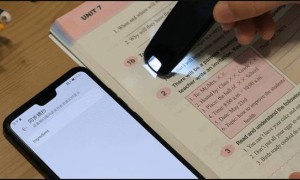If I were in your shoes, I'd apologize to him.
我要是你,就会去跟他道歉。
in one's shoes 字面意思是:“穿某人的鞋子”,由此可以很容易地联想到这个习语要表达的是换位思考,体会对方的难处和苦衷,不要用皮鞋的心态来说人字拖的事。所以这个习语的正确意思是:“站在某人的立场上考虑”。因此,当美国人说"If I were in your shoes, I'd apologize to him."时,他/她要表达的意思就是:"If I were you, I would say sorry to him."、"If I were in the same situation, I would apologize to him."。
情景对白:
Terry: I criticized my assistant this morning. But maybe I was barking up the wrong tree.
泰瑞:我今天早上批评了助理,但是或许我错怪她了。
Benjamin: Well, If I were in your shoes, I'd apologize to her.
本杰明:嗯,我要是你,就会去跟她道歉。

搭配句积累:
①I was at odds with the manager and offended him.
我和经理意见有分歧,而且我还惹怒了他。
②A client refused to sign a contract with us only because of my joke.
由于我开了个玩笑,客户拒绝跟我们签署合同了。
③The client threatened to terminate our cooperation unless I apologize.
那个客户威胁说除非我道歉,要不然就要终止合作。
④I broke our boss's vase, but I dare not tell him.
我打碎了老板的花瓶,但是我不敢告诉他。
单词:
1. at odds 意见不致
His current perspective is profoundly at odds with that of almost everyone else.
他目前的观点同其他人完全不同。
The figures are at odds with our findings.
这些数字与我们的发现不一致。
2. terminate vt. 使终止
Her next remark abruptly terminated the conversation.
她接下来说的话使谈话戛然而止。
His contract terminates at the end of the season.
他的合同在本赛季末终止。
3. vase n. 花瓶
The flaw in this vase makes it less valuable.
这个花瓶因为有点缺陷,不那么值钱了。
The vase made by the artisan is wonderful.
那个手艺人做的花瓶棒极了。







